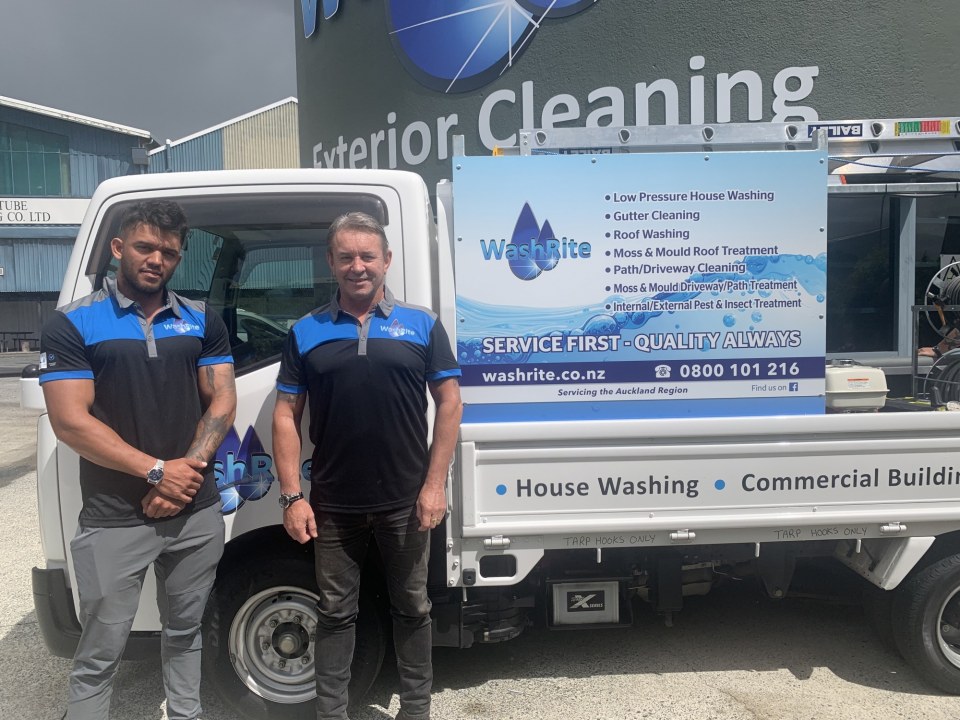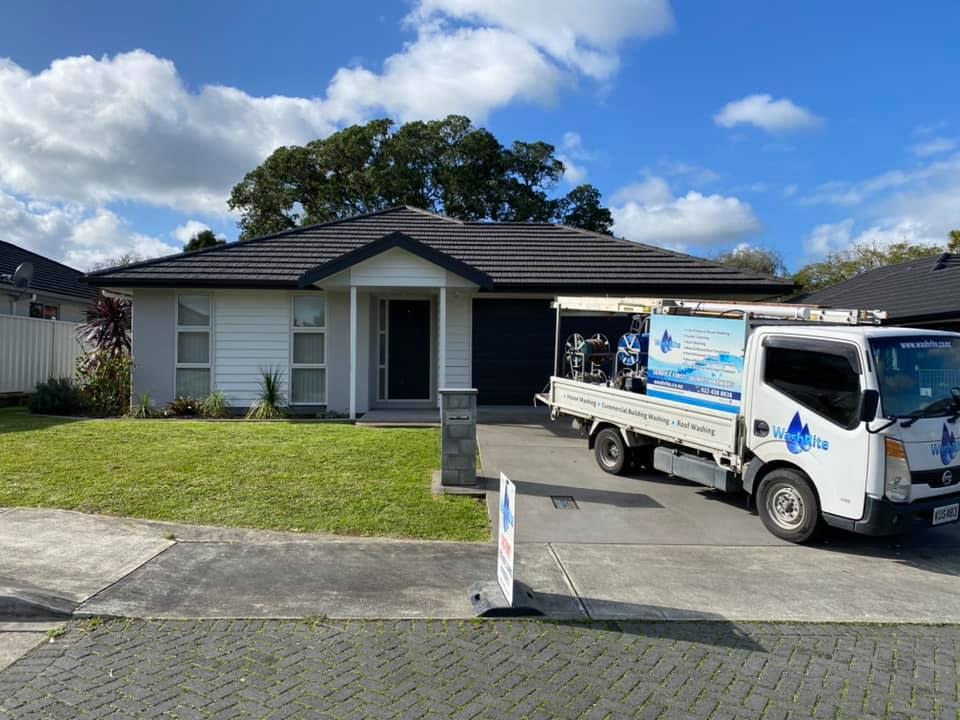Are you tired of spending hours scrubbing and washing your house, only to find that it still looks dull and dirty? Look no further! In this comprehensive guide, we will walk you through the process of choosing the best house washer for sparkling clean results.
Whether you're a homeowner looking to maintain your property's curb appeal or a professional cleaner wanting to provide your clients with impeccable service, selecting the right house washer is essential. With so many options available on the market, it can be overwhelming to make the right choice.
That's where we come in. We have researched and tested various house washers to bring you the ultimate guide that will simplify your decision-making process. From pressure washers to soft wash systems, we will explore the pros and cons of each, explaining their different features and applications.
Not only will this guide help you choose a house washer that meets your cleaning needs, but it will also provide valuable tips on how to achieve sparkling clean results. So, get ready to say goodbye to grime and hello to a spotless home!
Importance of House Washing
Maintaining the exterior of your house is crucial not only for aesthetics but also for the longevity of your property. Over time, dirt, grime, mould, and pollutants can accumulate on the surfaces, leading to a worn-out appearance and potential damage. Regular house washing not only enhances the curb appeal but also protects the building materials from deterioration.
House washing is especially important before painting or applying any protective coatings. By removing the built-up dirt and contaminants, you ensure a clean surface for better adhesion and a smoother finish. Moreover, a clean house exterior creates a welcoming atmosphere and adds value to your property, making it essential for homeowners and professional cleaners alike.
It's no secret that manual cleaning methods are time-consuming and physically demanding. With the right house washer, you can achieve superior results in a fraction of the time and effort. Whether you're tackling a small residential property or a large commercial building, investing in a quality house washer can streamline the cleaning process and deliver exceptional outcomes.
Types of House Washers
When it comes to house washers, there are various types available on the market, each catering to specific cleaning needs and preferences. Pressure washers, also known as power washers, are popular for their high-pressure water spray that effectively removes dirt, grime, and stains from surfaces. These machines are ideal for tough cleaning tasks such as removing mold, mildew, and grease.
On the other hand, soft wash systems utilise low-pressure water combined with specialised cleaning solutions to gently clean delicate surfaces like siding, windows, and roofs. This method is perfect for maintaining the integrity of painted surfaces and preventing damage that high-pressure washing can cause. Soft wash systems are versatile and suitable for a range of cleaning applications.
Choosing between a pressure washer and a soft wash system depends on the type of surfaces you'll be cleaning and the level of dirt and grime present. While pressure washers are more powerful and effective for heavy-duty cleaning, soft wash systems offer a gentle yet thorough cleaning solution for delicate areas. Understanding the differences between these two types of house washers is essential for achieving optimal results.
Electric vs. Gas-Powered House Washers
One of the key considerations when selecting a house washer is the power source: electric or gas. Electric house washers are typically more lightweight, compact, and easier to maneuver, making them suitable for smaller cleaning tasks around the house. They are also quieter and emit zero emissions, making them environmentally friendly options.
Gas-powered house washers, on the other hand, are more powerful and suitable for heavy-duty cleaning jobs. They provide greater mobility and do not require access to an electrical outlet, making them ideal for outdoor cleaning applications. However, gas-powered washers are bulkier, louder, and emit exhaust fumes, which may not be suitable for indoor use or environmentally conscious individuals.
The choice between electric and gas-powered house washers ultimately depends on your cleaning requirements, budget, and preferences. Electric washers are convenient for light to moderate cleaning tasks, while gas-powered washers are better suited for larger surfaces and tougher stains. Consider the portability, power output, and maintenance requirements of each type before making your decision.
Pressure vs. Power Washers
The terms "pressure washer" and "power washer" are often used interchangeably, but there are subtle differences between the two. Pressure washers deliver a high-pressure stream of water to clean surfaces, while power washers use hot water in addition to high pressure for enhanced cleaning performance. Power washers are particularly effective for removing tough stains and grease.
Pressure washers are versatile and can be used for a variety of cleaning tasks, from washing cars and driveways to cleaning decks and patios. They come in different pressure ratings, measured in pounds per square inch (PSI), to accommodate various cleaning needs. Power washers, with the added feature of hot water, are more efficient at cutting through grease and grime.
Choosing between a pressure washer and a power washer depends on the level of cleaning power you require. For general cleaning and maintenance, a pressure washer may suffice. However, if you're dealing with stubborn stains or heavy grease buildup, a power washer can provide the extra heat needed to tackle the toughest cleaning challenges. Evaluate your cleaning tasks and choose the appropriate washer accordingly.
Factors to Consider When Choosing a House Washer
Selecting the best house washer involves considering several factors to ensure you get a machine that meets your cleaning needs and preferences. One of the primary factors to consider is the water pressure, which determines the cleaning power of the washer. Higher PSI ratings indicate greater pressure, making the washer more effective at removing dirt and stains.
Another important factor is the flow rate, measured in gallons per minute (GPM), which indicates how much water the washer dispenses. A higher flow rate can help rinse away dirt and debris more efficiently, speeding up the cleaning process. Additionally, consider the nozzle options and spray patterns available with the washer, as they can affect the versatility and effectiveness of the cleaning.
The size and weight of the house washer are also crucial factors to consider, especially if you'll be moving the machine frequently or transporting it to different locations. A compact and lightweight washer is easier to handle and store, while a larger, heavier unit may provide more power but be less convenient to manoeuvre. Evaluate your cleaning requirements and the portability of the washer before making a decision.
Features to Look for in a House Washer
When shopping for a house washer, look for specific features that can enhance the cleaning experience and improve the results. Adjustable pressure settings allow you to customise the water pressure according to the surface you're cleaning, preventing damage to delicate materials. Some washers also offer interchangeable nozzles for different spray patterns.
Built-in detergent tanks are convenient for adding cleaning solutions to the water stream, providing a more effective and efficient cleaning process. Integrated hose reels help keep the hose organized and prevent tangles during storage. Consider additional features such as onboard storage for accessories, cord or hose length, and noise levels to ensure a user-friendly experience.
Moreover, look for safety features like automatic shut-off mechanisms, thermal overload protection, and leak-proof connections to prevent accidents and ensure the longevity of the washer. A reliable warranty and customer support from the manufacturer are also essential for peace of mind and assistance in case of any issues. By selecting a house washer with the right features, you can optimise your cleaning performance and achieve sparkling clean results.
Top Brands of House Washers for home users
When it comes to choosing a house washer, opting for a reputable and reliable brand can make a significant difference in the quality and durability of the machine. Some of the top brands known for producing high-quality house washers include Karcher, Sun Joe, Simpson, Ryobi, and Greenworks. These brands offer a range of models with varying features and specifications to suit different cleaning needs.
Karcher is a well-known name in the pressure washer industry, renowned for its innovative designs and powerful performance. Sun Joe specialises in electric house washers that are affordable and user-friendly, making them popular among homeowners. Simpson and Ryobi are recognised for their gas-powered washers, known for their durability and efficiency in tackling tough cleaning tasks.
Greenworks is a leading brand in eco-friendly outdoor power equipment, offering a selection of electric house washers that are energy-efficient and environmentally conscious. By choosing a house washer from a trusted brand, you can be confident in the reliability and performance of the machine, ensuring long-term satisfaction and exceptional cleaning results.
Maintenance Tips for House Washers
To maximise the lifespan and performance of your house washer, regular maintenance is essential. Start by inspecting the machine before each use to ensure all connections are secure, hoses are intact, and nozzles are clear of debris. Clean the filters and screens regularly to prevent clogs and maintain optimal water flow during operation.
After each use, flush out any remaining detergent or cleaning solution from the system to prevent buildup and corrosion. Store the house washer in a dry and protected area to shield it from the elements and prolong its longevity. Perform routine checks on the pump, motor, and other components to identify any signs of wear or damage early on.
Additionally, follow the manufacturer's guidelines for maintenance tasks such as oil changes, filter replacements, and pump inspections. Keep the machine clean and free of dirt and grime to prevent breakdowns and ensure consistent performance. By taking care of your house washer and following a regular maintenance routine, you can extend its lifespan and enjoy reliable cleaning power for years to come.
Safety Precautions When Using a House Washer
While house washers are effective tools for cleaning various surfaces, they can pose safety risks if not used properly. Always read the manufacturer's instructions and safety guidelines before operating the machine to understand its features and limitations. Wear appropriate protective gear such as goggles, gloves, and closed-toe shoes to prevent injuries from flying debris or splashing water.
Maintain a safe distance from the surfaces you're cleaning to avoid damaging delicate materials or causing injury. Test the water pressure on a small, inconspicuous area before tackling larger surfaces to ensure the settings are appropriate. Avoid pointing the spray nozzle at people, animals, or electrical outlets to prevent accidents and damage.
When using a gas-powered house washer, ensure proper ventilation in outdoor spaces to prevent carbon monoxide buildup. Never operate the machine indoors or in enclosed areas to avoid exposure to harmful fumes. Turn off the washer and release pressure from the system before performing any maintenance or nozzle changes to prevent accidental spraying.
By following safety precautions and using the house washer responsibly, you can minimise risks and ensure a safe cleaning experience. Prioritise safety at all times to protect yourself, others, and the surfaces you're cleaning from potential harm. By combining proper safety measures with effective cleaning techniques, you can achieve sparkling clean results without compromising on well-being.
 21 Jan 2021
21 Jan 2021 27 Jul 2021
27 Jul 2021 15 Aug 2021
15 Aug 2021





